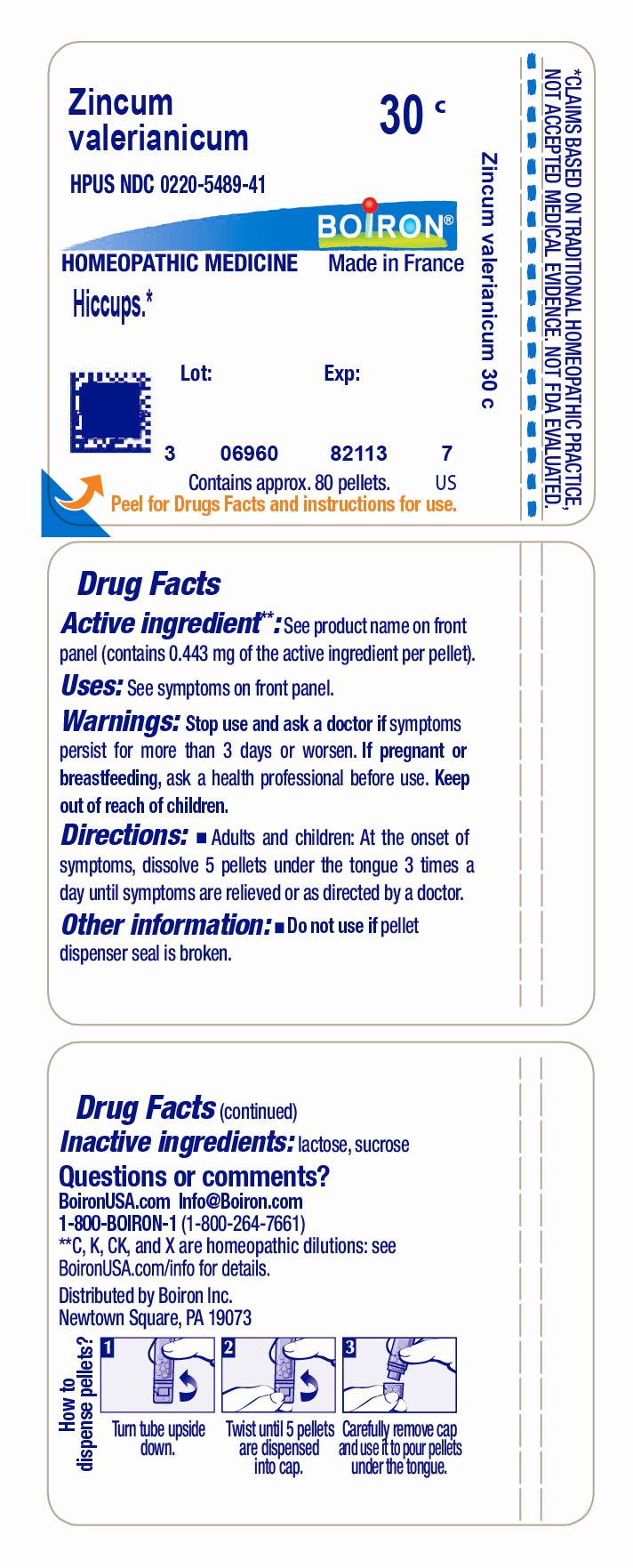Zincum Valerianicum | Zinc Valerate Dihydrate Pellet while Breastfeeding

What is Zincum Valerianicum | Zinc Valerate Dihydrate Pellet used for?
Is using Zincum Valerianicum | Zinc Valerate Dihydrate Pellet unsafe in breastfeeding? Can there be bad consequences for baby if I use it while breastfeeding?

Note: Due to high dilution of active ingredients in homeopathic medicines most homeopathic medicines are safe while breastfeeding.
Zincum Valerianicum | Zinc Valerate Dihydrate Pellet Breastfeeding Analsys
Zinc valerate dihydrate while Breastfeeding
SafeZinc (Zn) is an essential element for nutrition. It is present in many foods.Recommended daily allowance of Zn is 8 to 15 mg. (Moran Hall 2010). Millions of people worldwide are Zn-deficient.It is used as a treatment for Wilson's disease and Acrodermatitis Enteropathica. Zn is involved in the regulation process of lactation (Lee 2016).Pasteurization of the milk does not affect the concentration of Zn and other trace elements (Mohd Taufek-2016). The average concentration of Zn in breastmilk is 4 to 16 mg / L (Picciano 1976, Hannan 2005, Dórea 2012) which is independent of plasma levels and maternal daily intake (Krebs 1995, Chierici 1999, Hannan 2009).Intestinal absorption of zinc is almost doubled during pregnancy and lactation (Fung 1997).Zinc levels in the infant are dependent on Zinc levels in the breast milk (Dumrongwongsiri 2015)With a varied and balanced diet, an extra intake of minerals is not needed. Excessive intake of Zinc may cause gastrointestinal problems and Pancytopenia (Irving 2003).
What should I do if already breastfed my kid after using Zincum Valerianicum | Zinc Valerate Dihydrate Pellet?
Homeopathic medicines usually do not cause harmful effects on breastfed babies. Zincum Valerianicum | Zinc Valerate Dihydrate Pellet is a homeopathic medicine and if your baby does not have any abnormal symptoms then there is nothing to worry about. Some homeopathic medicines contain alcohol (ethanol) and such homeopathic medicines in high dosage can have bad effect on development of baby.
My health care provider has asked me to use Zincum Valerianicum | Zinc Valerate Dihydrate Pellet, what to do?
Homeopathic medicines are usually safe in breastfeeding and if Zincum Valerianicum | Zinc Valerate Dihydrate Pellet has been recommended by doctor then there should be no doubt about its usage in breastfeeding.
If I am using Zincum Valerianicum | Zinc Valerate Dihydrate Pellet, will my baby need extra monitoring?
Not really.
Who can I talk to if I have questions about usage of Zincum Valerianicum | Zinc Valerate Dihydrate Pellet in breastfeeding?
US
National Womens Health and Breastfeeding Helpline: 800-994-9662 (TDD 888-220-5446) 9 a.m. and 6 p.m. ET, Monday through Friday
UK
National Breastfeeding Helpline: 0300-100-0212 9.30am to 9.30pm, daily
Association of Breastfeeding Mothers: 0300-330-5453
La Leche League: 0345-120-2918
The Breastfeeding Network supporter line in Bengali and Sylheti: 0300-456-2421
National Childbirth Trust (NCT): 0300-330-0700
Australia
National Breastfeeding Helpline: 1800-686-268 24 hours a day, 7 days a week
Canada
Telehealth Ontario for breastfeeding: 1-866-797-0000 24 hours a day, 7 days a week
